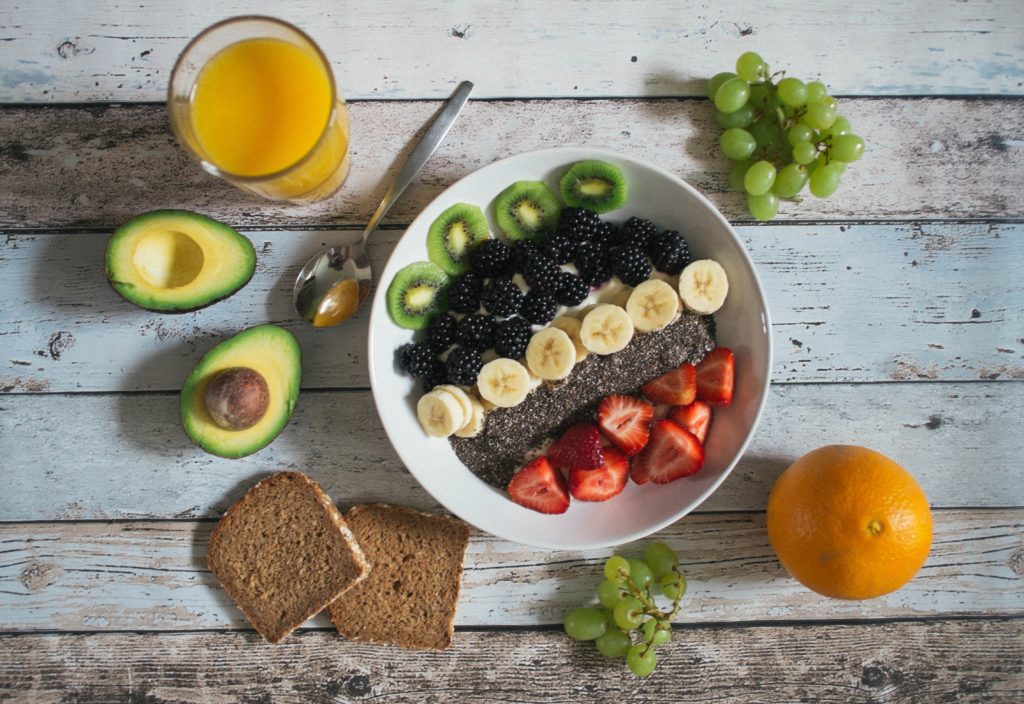2 Big Reasons Your Diet Isn’t Working

Fat loss is simple, but not easy.
Many people know what they should be doing, but they have a hard time developing the habits and making the behavior change that are necessary to lose the stubborn body fat, and keep it off for good.
Many people who go on a diet and lose weight eventually gain the weight back, and usually even more, putting them heavier than they were before they started the diet!
Others never lose much weight at all. They can’t consistently eat well for more than a few days and they fall off track horribly if things don’t go exactly as planned. These people are constantly trying to get back on track, they’re spinning their wheels, and never making any significant progress.
Fat loss attempts fail for many reasons, and here are 2 big reasons people consistently struggle to get the body they want, and getting rid of the fat for good.
You’re Viewing It As A Temporary Fix and Have a Negative Outlook
If you view your new way of eating as a temporary fix, and you have a deadline for when your diet is over, you’re already doing yourself a disservice.
What happens when your diet is over?
For most people, they end up going back to their old ways of eating, and gaining the weight back, or even more.
They didn’t make the lifestyle changes and build the habits necessary to make permanent change.
Don’t be most people.
Instead, view it as lifestyle change you’re making to support your health and fitness goals.
A change that will…
- Make you healthier.
- Have you feeling better and more confident due to looking better.
- Improve your performance in the gym, and life in general.
- Have you feeling more energized.
View it as a lifestyle change you’re making to become the new and improved version of you.
Ask yourself what your “why” is. Find your purpose, your drivers and motivators, and why you really want this change to take place.
What would it do for you? How would it change you and your life?
Getting answers to these questions and gaining clarity on what you want and why you want it can make sticking with your new way of eating less of a challenge, and increase your chances of succeeding.
Not only should you not be viewing your new way of eating as a “diet” or a temporary fix, but try to limit or avoid the negative associations with being in a calorie deficit to lose weight. A positive outlook and being mentally prepared to lose weight goes a long way.
The word “diet” gets a bad rap. When many people see or hear the word “diet”, they think deprivation and overly restrictive meal plans, constant hunger, and overall, just not much fun.
When fat loss is the goal, you will be hungry at times. You will have to restrict yourself to some degree.
It definitely won’t always be fun. There will be times you want to give up.
But being mentally prepared to take on the challenges that come with losing fat and building the body you want is key.
Being in a calorie deficit to get leaner doesn’t HAVE to be an awful experience.
View at as a way to challenge yourself, learn more about yourself, and as a test to see what you’re capable of–both physically and mentally.
Know that…
- You will be hungry at times.
- It won’t always be fun.
- There will be times you want to give up.
- It won’t go 100% to plan.
- You probably will give into cravings.
- The scale will fluctuate.
- You might get moody and irritable from being hungry
- You might get tired from not eating as much.
Do your best and be mentally prepared to handle the challenges you will face.
Only worry about what you can control, and keep the best attitude that you can.
You’re Completely Eliminating Foods You Enjoy
Many people are led to believe that in order to achieve their fat loss goals and keep the weight off, they have to cut out their favorite foods–no more junk food, and only nutrient-dense, whole foods.
Yes, achieving your fat loss goals will require some level of sacrifice, and you will have to consume less calories.
But you don’t have to completely give up your favorite foods, even if your favorite foods are one’s that are typically labeled as “bad.” That’s unsustainable long-term and no way to live your life.
Looking at certain foods as “good” and “bad” can lead to feeling guilty about eating foods labeled “bad” and can create an unhealthy relationship with food.
Anything in moderation is fine, and there’s a time and place for any food. Some are more nutritious than others, and some are better suited for certain situations than others.
Imagine showing up to Christmas dinner and being served chicken breast, brown rice, and broccoli, and no dessert. You’d probably be pretty disappointed. Sure, that might be a meal you’d make at home, but that’s probably not what you want at Christmas dinner.
On a day-to-day basis, you can still eat some foods that aren’t very nutritious, but make sure you’re paying close attention to serving sizes and doing your best to fit the food you want into your daily calorie intake.
Get most of your calories, about 80-85%, from nutrient-dense, high-quality foods. The remaining 15-20% can come from foods that aren’t as nutritious.
It is possible to fit the foods you enjoy into your diet, and still get in a variety of fruits, vegetables, and enough protein and fiber.
You can still be healthy while eating not as nutritious foods in moderation.
By including foods that are typically labeled “bad”, you’ll most likely have an easier time being consistent with your nutrition because you get to enjoy the foods you really like more frequently.
Many people try to go as long as they can being 100% perfect with their nutrition. Then they have a cheat meal, or even worse, a cheat day.
They get to eat all of the stuff they’ve been craving.
An even worse scenario, but still very common, is when people try to be 100% perfect, no cheat meal or day planned, and they end up giving into their cravings and binging.
They eat tons of “bad” foods. This is usually followed by feelings of guilt and regret. They feel like they messed up and did something wrong.
This can become a very dangerous cycle of very rigid dieting, no flexibility, followed by a binge, and finally regret and guilt. Then repeat, over and over.
This can be avoided by eating anything you want in moderation.
Track your calories, make sure the foods you enjoy fit into your daily caloric intake, and know there’s a time and place for any food.
It doesn’t make any sense to turn down 2 Oreos every other night when you can fit them into you calories, but then eat a whole pizza, Ben & Jerry’s ice cream, and 6 cookies once every 2-3 weeks and justify it by saying it’s a “cheat.”
It doesn’t make any sense, but unfortunately this is very common.
If you want to have more control over your body, lose body fat, love the way you look and how you feel, change the way you view food.
Being consistent is extremely important.
When you eliminate too many foods or food groups, being consistent often becomes much more challenging.
Perfection is not a requirement, but consistency is.
Ready To Finally Commit to Your Goals?
Apply for Coaching
